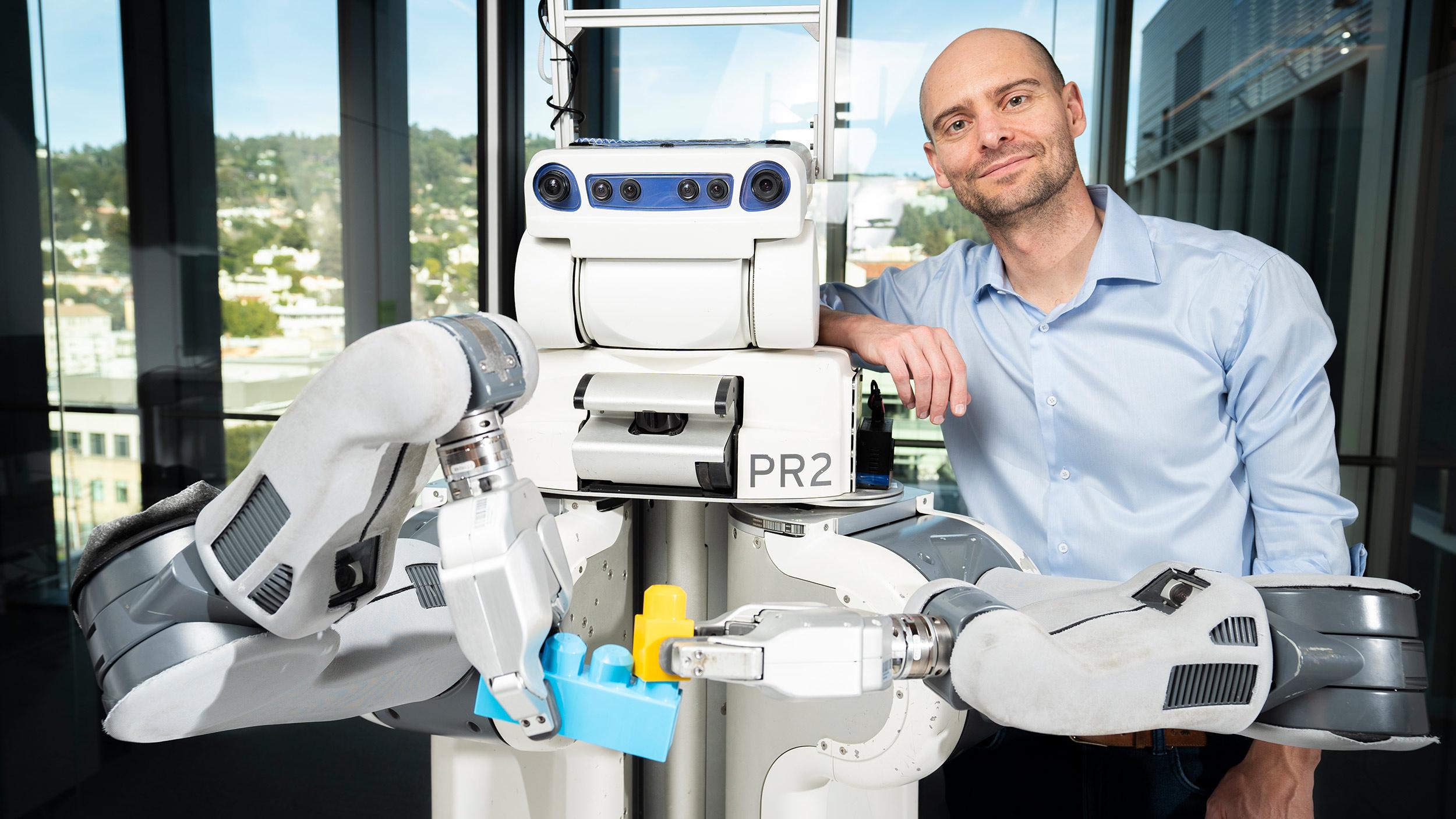This article is cross-posted from
Berkeley robot learning pioneer Pieter Abbeel wins ACM Prize in Computing
April 6 | UC Berkeley's College of Engineering

The Association for Computing Machinery (ACM), the world’s largest scientific and educational computing society, has awarded UC Berkeley professor Pieter Abbeel the 2021 ACM Prize in Computing for his foundational work in robot learning.
The ACM Prize in Computing, announced today, honors early-to-mid career computer scientists whose research contributions have fundamental impact and broad implications. Recipients receive a $250,000 prize funded by an endowment from Infosys Ltd.
Abbeel, professor of electrical engineering and computer sciences, pioneered apprenticeship and reinforcement learning models in which robots learn from human demonstrations or through their own trial and error, respectively. These models represented a fundamental departure from the approach of pre-programming responses to all scenarios that robots would encounter, setting the stage for the next generation of robotics that can more flexibly adapt to new environments.
Early successes that emerged from Abbeel’s lab include a robot that could fold laundry, highlighting its ability to perceive and manipulate shape-shifting materials. Mastering the challenging task required a combination of new methods to enhance robot visual perception, physics-based tracking, control and learning from demonstration.
Abbeel’s robot, nicknamed BRETT for the Berkeley Robot for the Elimination of Tedious Tasks, graduated to another key breakthrough that enabled robots to learn motor tasks — such as assembling a toy airplane — through deep reinforcement learning. The new algorithms guided BRETT’s movements through a trial-and-error process based on neural networks that more closely resembled the way humans learn. Abbeel developed a method called Trust Region Policy Optimization to stabilize the reinforcement learning process, enabling robots to learn a range of simulated control skills.
The seminal research has led to robots that can perform surgical suturing, detect objects and plan their trajectories in uncertain situations. More recently, Abbeel has pioneered “few-shot imitation learning,” where a robot is able to learn to perform a task from just one demonstration after having been pre-trained with a large set of demonstrations on related tasks.
In the press release announcing the prize, ACM called out Abbeel’s commitment to building a community of researchers by sharing his results via video tutorials and the release of open-source code from his lab. It is a tradition that echoes the open-source ethos of earlier Berkeley achievements, such as the open-source operating system Berkeley UNIX and the open-source framework Apache Spark for programming computer clusters.
In 2021, Abbeel further expanded his reach by hosting The Robot Brains Podcast. Through this popular show, Abbeel has helped educate the public about recent advances in AI and robotics across a wide range of application domains, including warehousing, recycling, agriculture, climate, healthcare and transportation.
“Teaching robots to learn could spur major advances across many industries — from surgery and manufacturing to shipping and automated driving,” said ACM President Gabriele Kotsis. “Pieter Abbeel is a recognized leader among a new generation of researchers who are harnessing the latest machine learning techniques to revolutionize this field. Abbeel has made leapfrog research contributions, while also generously sharing his knowledge to build a community of colleagues working to take robots to an exciting new level of ability. His work exemplifies the intent of the ACM Prize in Computing to recognize outstanding work with ‘depth, impact and broad implications.’”
To bring this technology to market, Abbeel and his students — Peter Chen, Rocky Duan and Tianhao Zhang — co-founded Covariant, a company that applies deep reinforcement learning to robotics in real-world settings. The company, where Abbeel is president and chief scientist, has since garnered major headlines for successfully programming robots that can sort through bins of random items, an essential task in warehouse automation.
Abbeel will be formally presented with the ACM Prize in Computing at the annual ACM Awards Banquet, which will be held this year on Saturday, June 11, at the Palace Hotel in San Francisco.
